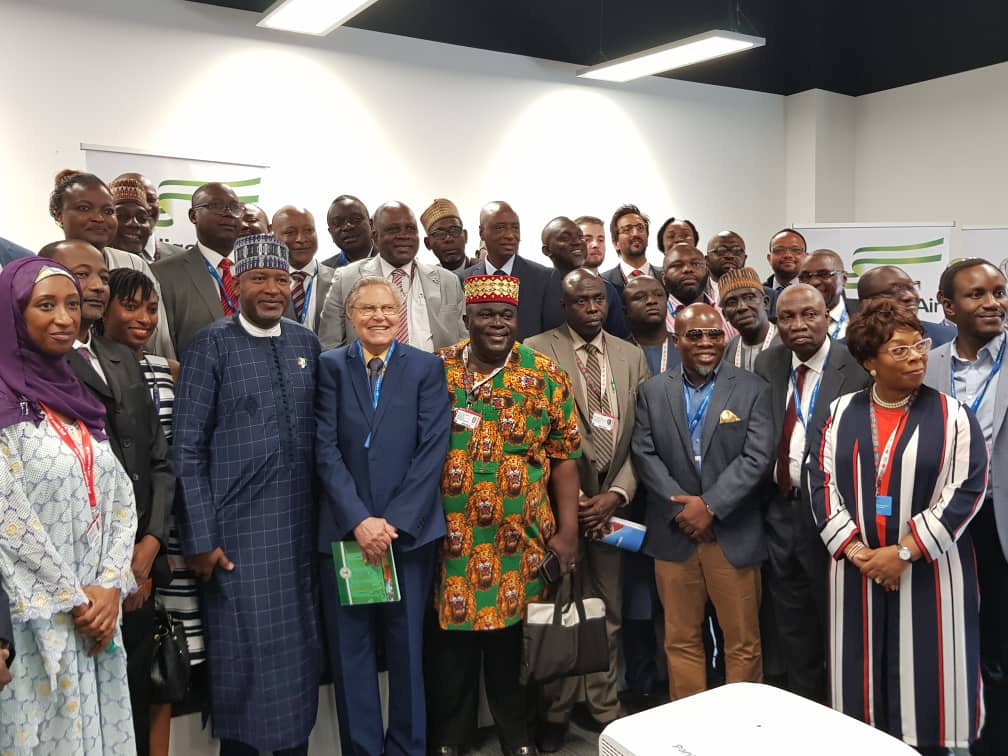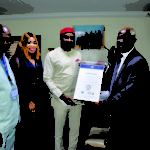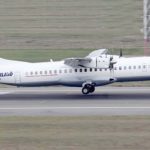
The federal government has reacted to the criticism over its commitment of $300 million in the national carrier projects, Nigeria Air, while it intends to have only five per cent equity.
Government had earlier explained that it would spend $8.8 million as preliminary cost, $300 million as take off cost for the national carrier and would have only five per cent equity in the airline.
But aviation experts and economists have faulted such investment for only five per cent equity,
They insisted that the five per cent equity government intends to have is not commensurate with the fund it is injecting in the project.
The Minister of State, Aviation, Hadi Sirika said the maximum equity of five per cent would ensure that government does not have any management control in the new airline, which would be private sector driven.
The experts noted that this is also in contrast to the condition given by the Infrastructure Concession Regulatory Commission (ICRC) when it issued Outline Business Case Compliance Certificate for the national carrier.
ICRC insisted that government would have zero investment and management of the airline.
Reacting to the criticisms, the Minister explained that at the start up of the company government would own majority equity in Nigeria Air Limited Joint Venture Company, which is a Joint Venture Company that would be very similar to Nigeria LNG Limited.
The Minister said that the government is not funding the entire project, but it is providing startup capital in the form of an Upfront Grant/Viability Gap Funding and once the strategic equity investor is in place, they would be expected to build on the initial investment made.
He said that the outline business case from ICRC made it clear that the strategic equity investors would not start the national carrier; government has to start it in order to attract credible investors.
“$8m represents startup capital for offices etc required for takeoff. But $300m is the entire airline cash flow funding requirements (aircrafts, operations and working capital) for three years (2018, 2019 and 2020). This funding can be in the form of equity or debt. The financial model estimates cash flow requirements as follows 2018 ($55m – $8 million is included here), 2019 ($100m) and 2020 ($145m).

“In order to ensure take-off of the airline in 2018, government will provide $55 Million upfront grant/viability gap funding to finance startup capital and pay commitment fees for aircrafts to be leased for initial operations and deposit for new aircrafts whose delivery will begin in 2021,” the Minister said.
Sirika said the remaining financial injection by government would be determined by the quantum of equity that the strategic equity partner will bring as a result of the PPP competitive bidding process.
He said government’s upfront grant/VGF contribution to equity may be funded through either a supplementary budgetary allocation or development financial institutions like AFREXIM bank, African Development Bank (AFBD), Islamic Development Bank (ISDB) or any other.
According to him, these institutions have indicated keen interest in funding the national carrier project because of its bankability and profitability profile.
The Minister, however, noted that as part of discussions with major aircraft manufacturers, government might pay deposits for brand new aircraft and the manufacturers would support Nigeria Air in getting very good dry lease aircraft coming directly from C checks and certified by the original manufacturers.
In other words, Nigeria Air might not start immediately with new aircraft but with leased fleet pending when the aircraft orders made would begin to arrive.
“These aircraft lease period will be for an initial period of five years with an early termination option after four years. By the time the new aircrafts are ready, they will be replacing the leased aircraft. Till all the aircraft are owned by the airline,” the Minister explained.
The Minister also said that the national carrier cannot use any of the old airlines like Arik Air or Aero Contractors because they have their different ideology and manuals.
He also assured that there is no secrecy in what government is doing.
“The entire process is guided by ICRC. Because it’s a PPP, it has three stages – the project development stage, procurement stage and implementation stage. The project development stage was just concluded with the approval of the Outline Business Case,” he said.






